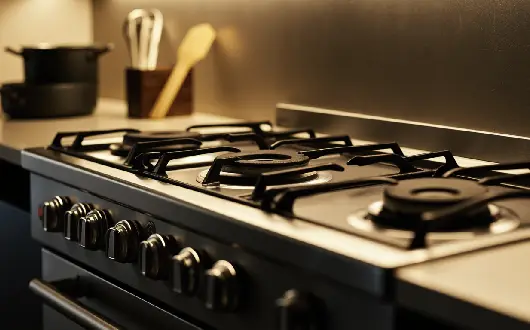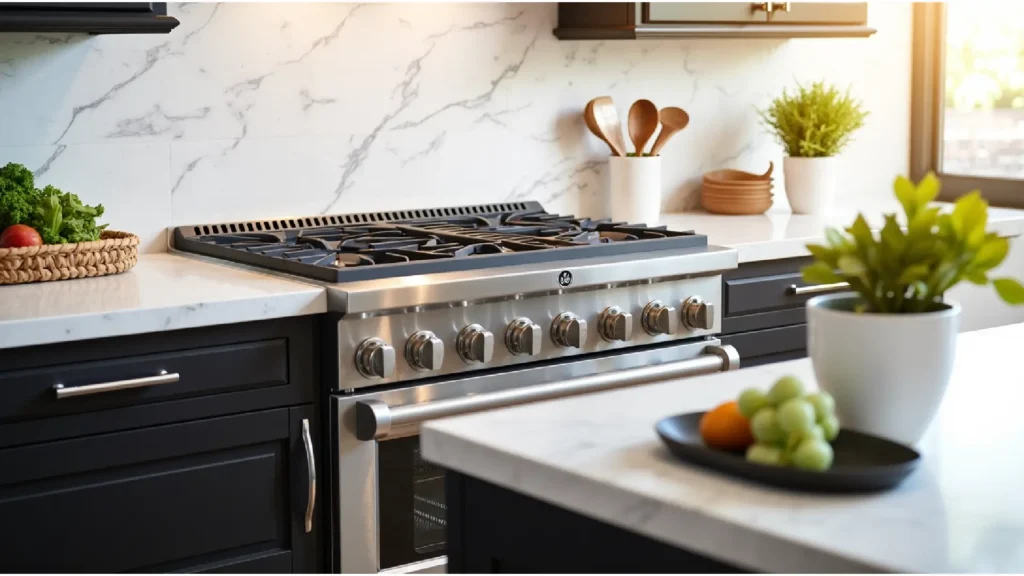
Cost to Install Gas Cooktop: What You Need to Know
When you’re diving into a home improvement project, it’s crucial to get a grip on the cost breakdown. You might think it’s just about the price of materials, but there’s so much more to consider. For instance, if you’re installing new flooring, you’ll need to factor in not just the cost of the flooring itself but also underlayment, adhesives, and any tools you might need.
It can be a bit overwhelming at first, but breaking it down into categories can help you see where your money is going. Let’s not forget about labor costs. If you’re hiring someone to do the work, that can add a significant chunk to your budget.
Labor rates can vary widely depending on where you live and the complexity of the job. It’s always a good idea to get multiple quotes from different contractors to ensure you’re not overpaying. Plus, some contractors might include cleanup or disposal fees in their estimates, while others might not.
So, make sure you’re comparing apples to apples when you’re looking at those quotes.
Key Takeaways
- Understanding the cost breakdown: Solar panel installation costs can be broken down into equipment, labor, and other miscellaneous expenses.
- Factors influencing installation costs: Location, roof type, system size, and equipment quality can all impact the overall installation costs.
- Comparing installation options: Homeowners should consider different installation options such as rooftop, ground-mounted, or solar shingles to find the best fit for their property.
- Budgeting for additional expenses: It’s important to budget for potential additional expenses such as roof repairs, electrical upgrades, or tree removal that may be necessary for the installation.
- Hiring a professional installer vs. DIY: While DIY installation may save money, hiring a professional can ensure proper installation and warranty coverage.
- Obtaining necessary permits and inspections: Homeowners must obtain permits and schedule inspections to ensure the solar installation meets local building codes and regulations.
- Ensuring safety and compliance with regulations: Safety and compliance with regulations are crucial for a successful solar installation and long-term operation.
- Long-term maintenance and operating costs: Homeowners should consider long-term maintenance and operating costs, such as cleaning, monitoring, and potential repairs, when budgeting for solar panel installation.
Factors influencing installation costs
Now, let’s talk about what influences those installation costs. One major factor is the type of material you choose. For example, hardwood flooring can be pricier than laminate, but it might also add more value to your home in the long run.
On top of that, some materials require more specialized installation techniques, which can drive up labor costs. If you’re leaning toward something like tile or stone, be prepared for a steeper price tag due to the skill level required. Another thing to consider is the size and layout of the area where you’re installing.
If you’ve got an oddly shaped room or lots of nooks and crannies, that can complicate things and lead to higher costs. Plus, if your existing flooring needs to be removed first, that’s another expense to factor in. It’s like a puzzle; the more pieces you have, the more time and effort it takes to put it all together.
Comparing installation options
When it comes to installation options, you’ve got a few routes to consider. You could go the traditional route and hire a professional installer, which is often the safest bet if you want a flawless finish. But then there’s the DIY route, which can save you some cash if you’re handy and willing to put in the time.
What’s interesting is that many people underestimate how much they can actually do themselves with a little research and effort. However, DIY isn’t for everyone. If you’re not confident in your skills or if the project is particularly complex, it might be worth it to invest in a pro.
On top of that, think about your time. Sometimes it’s just easier to pay someone else to handle it so you can focus on other things in your life. We all have busy schedules, right?
Weighing the pros and cons of each option can help you make a decision that fits your needs and budget.
Budgeting for additional expenses
| Expense Category | Estimated Cost | Actual Cost |
|---|---|---|
| Housing | 1,200 | 1,300 |
| Transportation | 200 | 250 |
| Groceries | 300 | 320 |
| Utilities | 150 | 170 |
| Entertainment | 100 | 120 |
Let’s face it: when budgeting for a project, it’s easy to overlook those sneaky additional expenses that pop up. You might have your heart set on that gorgeous tile, but don’t forget about grout, sealant, or even new baseboards that might be needed once everything’s installed. It’s like planning a vacation; you can’t just budget for flights and hotels—you’ve got to think about meals, activities, and souvenirs too.
To avoid any nasty surprises down the line, it’s smart to set aside a contingency fund—maybe around 10-20% of your total budget. This way, if something unexpected comes up (and trust me, it usually does), you won’t be scrambling to find extra cash at the last minute. Plus, having that cushion can give you peace of mind as you move forward with your project.
So, should you hire a professional installer or tackle the project yourself? This is one of those age-old debates in home improvement circles. On one hand, hiring a pro means you’re getting someone with experience who knows what they’re doing.
They’ve likely seen all sorts of issues come up and know how to handle them efficiently. Plus, there’s something comforting about knowing that the job will be done right. On the flip side, DIY can be incredibly rewarding.
There’s a certain satisfaction that comes from completing a project with your own two hands. You might even learn some new skills along the way! But let’s be real—if you’re not careful or if you rush through things because you’re eager to see results, it could end up costing you more in repairs later on.
So think about your own abilities and how much time you’re willing to invest before making a decision.
Obtaining necessary permits and inspections
Before diving headfirst into your project, don’t forget about permits and inspections! Depending on where you live and what kind of work you’re doing, you might need to get some official paperwork sorted out before starting. It can feel like an annoying hurdle at first, but these regulations are in place for good reasons—mainly safety and compliance with local building codes.
What’s interesting is that skipping this step can lead to bigger headaches down the line. If your work isn’t up to code or if an inspector comes by and finds out you didn’t get the necessary permits, you could face fines or even be forced to redo parts of your project. So take a little time upfront to check what’s required in your area; it’ll save you stress later on.
Ensuring safety and compliance with regulations
Speaking of safety and compliance, let’s chat about why this is so important during any installation project. You might think it’s just about following rules, but really, it’s about keeping yourself and others safe. Whether you’re dealing with electrical work or heavy materials, there are risks involved that shouldn’t be taken lightly.
For instance, if you’re installing something like cabinets or shelving units, making sure they’re securely anchored is crucial—nobody wants a heavy shelf falling off the wall! On top of that, if you’re working with tools or equipment you’re not familiar with, take the time to read up on safety guidelines or even ask someone who knows what they’re doing for advice. It’s better to be safe than sorry!
Long-term maintenance and operating costs
https://www.youtube.com/embed/h6UKpsRJd9o
Finally, let’s not forget about long-term maintenance and operating costs after your installation is complete. Sure, everything might look perfect right now, but how much upkeep will it require down the line? Some materials are more durable than others and may need less maintenance over time—think hardwood versus carpet.
Plus, consider how energy-efficient your choices are. If you’re installing new windows or insulation, those upfront costs can pay off in lower energy bills later on. It’s all about thinking ahead and making choices that will benefit you in the long run.
So as you’re planning your project, keep an eye on what kind of maintenance you’ll need to do down the road—it could save you both time and money! In conclusion, navigating through home improvement projects can feel like a maze at times with all these factors at play. But by understanding cost breakdowns, weighing installation options carefully, budgeting for extras, and keeping safety in mind, you’ll be well on your way to making informed decisions that suit both your needs and your wallet!
If you are considering the cost to install a gas cooktop, you may also be interested in reading about the Viking 48-inch wide built-in natural gas cooktop models. This article provides detailed information about the features and specifications of these high-quality cooktops, helping you make an informed decision about your purchase. Check out the article here for more information.
FAQs
What factors affect the cost to install a gas cooktop?
Factors that can affect the cost to install a gas cooktop include the type of cooktop being installed, the location of the installation, the complexity of the installation, and any additional materials or services required.
What is the average cost to install a gas cooktop?
The average cost to install a gas cooktop can range from $150 to $500, depending on the factors mentioned above. This cost may or may not include the price of the cooktop itself.
Do I need a professional to install a gas cooktop?
It is highly recommended to hire a professional for the installation of a gas cooktop. Gas appliances require specific expertise to ensure proper installation and safety.
Are there any additional costs associated with installing a gas cooktop?
Additional costs may include the need for a gas line installation or extension, venting or exhaust system installation, and any necessary electrical work. These costs can vary depending on the specific requirements of the installation.
Can I install a gas cooktop myself to save money?
It is not recommended to install a gas cooktop yourself unless you have the necessary expertise and experience. Improper installation of a gas appliance can lead to safety hazards and may not be up to code. It is best to hire a professional for this type of installation.




